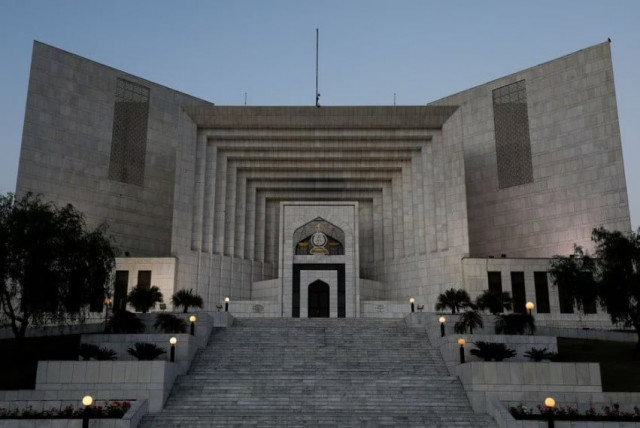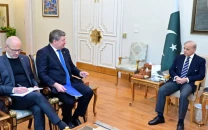Imran moves SC for bail in cipher case
PTI chief challenges IHC verdict that rejected his pleas

Former premier and PTI Chairman Imran Khan on Friday moved the Supreme Court seeking post-arrest bail in a case regarding the missing classified cypher telegraph’s copy, which the authorities claimed was still in his possession.
Imran, who is incarcerated at Rawalpindi’s Adiala Jail, filed the plea through his counsel Salman Safdar.
In his plea, the former premier challenged the Islamabad High Court’s Oct 27 verdict wherein his petition seeking post-arrest bail in the cypher case and the dismissal of its first information (FIR) report stood rejected.
“The Learned High Court has clearly travelled much beyond ‘tentative assessment’ and … indulged in unnecessary in depth ‘deeper appreciation’ by adjudicating the bail application [in four] with arguments spanning over 10 hours,” the petition read.
“Great prejudice has been caused with delayed adjudication, prolonged submissions, and an extraordinary and lengthy bail refusal order,” it added.
The PTI chairman also informed the top court in his plea that he had submitted a post-arrest bail petition before the special judge designated under the Official Secrets Act, 1923, in Islamabad on Aug 30 but it was dismissed on Sept 14.
“The dismissal was made without due consideration of the merits of the case, overlooking various substantial irregularities and multiple contradictions within the prosecution's narrative,” the plea read.
On Sept 30 this year, the Federal Investigation Agency (FIA) submitted its charge sheet in the cipher case to the special court, claiming that Imran had violated the Official Secrets Act by unlawfully keeping a diplomatic cipher in his possession.
The agency also accused PTI leader Shah Mahmood Qureshi of facilitating Imran while also mentioning his March 27, 2022 speech at a public rally in Islamabad.
Imran had waved a piece of paper at a rally, claiming it to be a diplomatic cipher that was evidence of an "international conspiracy" to topple his government.
Read Court adjourns cypher case hearing without recording testimonies
Imran in his petition claimed that as a former premier and the head of the “largest political party” in the country, he found himself “entangled in nearly 200” criminal cases.
“These charges encompass allegations of terrorism, mutiny, sedition, prohibited funding, Toshakhana, speeches and addresses in the media, violence, and criminal conspiracies against the State. These cases have been filed with the sole agenda of politically victimising the petitioner (Imran), settling scores, and politically isolating him,” the petition read.
The PTI chief maintained that the initiation of the cypher case, orchestrated at the behest of the interior ministry secretary and executed by the FIA, represented yet another endeavour to subject him to political victimisation.
He added that the foreign affairs ministry, as per the prosecution itself, was the original recipient of the cypher telegram.
However, he continued that the foreign affairs ministry had been “kept at bay” and instead the interior ministry secretary had assumed the role of the complainant in the instant case.
“It appears that [the] Ministry of Foreign Affairs is not aggrieved and the actual locus standi has been hijacked by the then interior minister who directly controlled [the] FIA and used the opportunity for political score settling,” the petition claimed.
The PTI chief also raised questions about the FIA’s “notable lack of independence and fairness” in his matter.
The petition also read that a quick look at the Official Secrets Act, 1923, revealed that its primary focus is on addressing serious offences like espionage and the unauthorised sharing of confidential information, including photographs, maps, sketches, and plans, related to "prohibited" and "notified" areas with "Enemy States", which could compromise national security.
“A simple examination of Section 5 of the Act, 1923, clearly shows that neither the offences outlined in Section 5 nor Section 9 apply to the allegations detailed in the FIR, rendering the Official Secrets Act, 1923, irrelevant in this case,” it continued.



















COMMENTS
Comments are moderated and generally will be posted if they are on-topic and not abusive.
For more information, please see our Comments FAQ